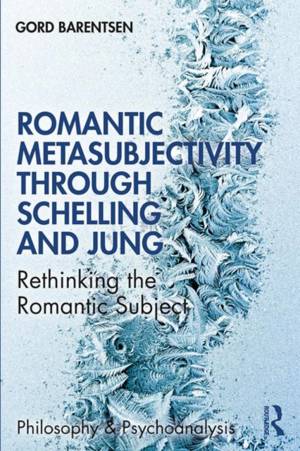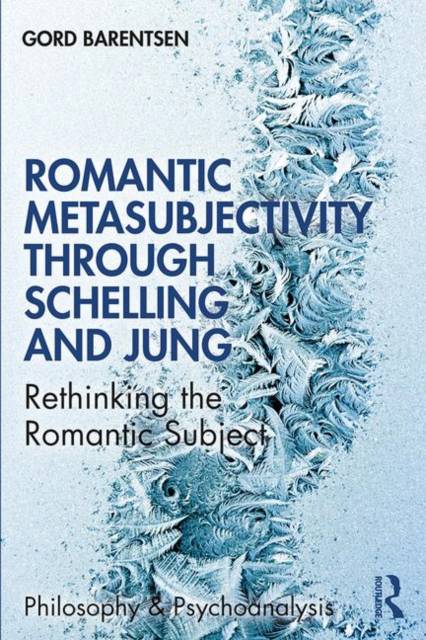
- Retrait gratuit dans votre magasin Club
- 7.000.000 titres dans notre catalogue
- Payer en toute sécurité
- Toujours un magasin près de chez vous
- Retrait gratuit dans votre magasin Club
- 7.000.0000 titres dans notre catalogue
- Payer en toute sécurité
- Toujours un magasin près de chez vous
Description
Romantic Metasubjectivity Through Schelling and Jung: Rethinking the Romantic Subject explores the remarkable intellectual isomorphism between the philosophy of Friedrich Schelling and Carl Jung's analytical psychology in order to offer a crucial and original corrective to the "reflection theory" of subjectivity.
Arguing that the reflection theory of the subject does not do justice to the full compass of Romantic thinking about the human being, Romantic Metasubjectivity sees human identity as neither discursive aftereffect nor centred around a self-transparent "I" but rather as constellated around the centripetal force of what Novalis calls "The Self of one's self." The author begins with a unique reading of Schelling's early Naturphilosophie as primal site rather than Freudian scene, thinking this site through his Philosophical Inquiries Into the Nature of Human Freedom to The Ages of the World. Reading Jungian metapsychology and its core concepts as therapeutic amplifications of Schelling, the author articulates an intellectual counter-transference in which Schelling and Jung contemporise each other. The book then demonstrates how Romantic metasubjectivity operates in the libidinal matrix of Romantic poetry through readings of William Wordsworth's The Prelude and Percy Shelley's Prometheus Unbound. The book concludes with a discussion of the hit TV series Breaking Bad as a "case study" of the challenges Romantic metasubjectivity raises for fundamental ethical dilemmas which confront us in the twenty-first century.
Romantic Metasubjectivity is a highly original work of scholarship and will appeal to students and scholars in German Idealism, Romanticism, philosophy, psychoanalysis, theory, Jung studies, and those with an interest in contemporary theories of the subject.
Spécifications
Parties prenantes
- Auteur(s) :
- Editeur:
Contenu
- Nombre de pages :
- 280
- Langue:
- Anglais
- Collection :
Caractéristiques
- EAN:
- 9780367439286
- Date de parution :
- 29-04-20
- Format:
- Livre broché
- Format numérique:
- Trade paperback (VS)
- Dimensions :
- 155 mm x 231 mm
- Poids :
- 430 g

Les avis
Nous publions uniquement les avis qui respectent les conditions requises. Consultez nos conditions pour les avis.






